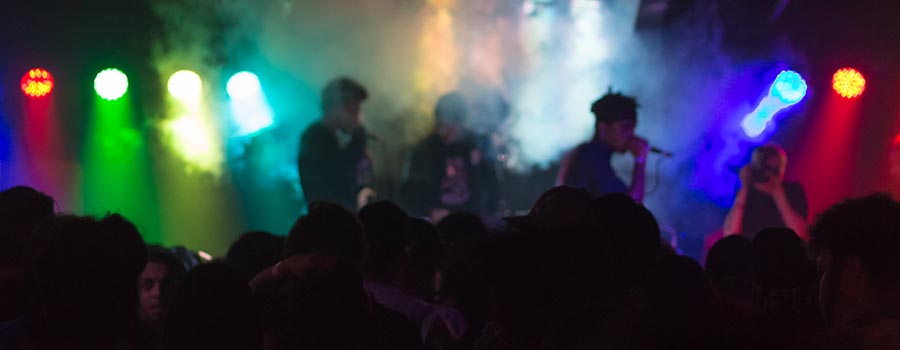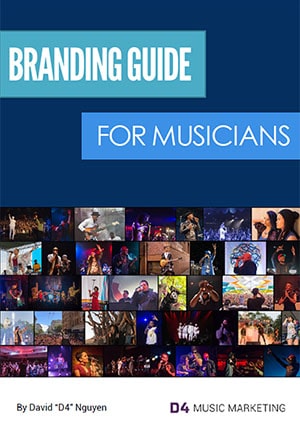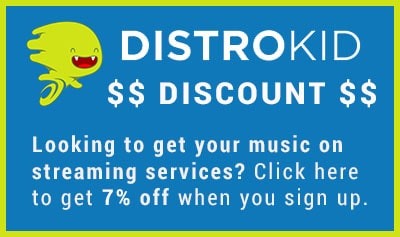
It’s no secret that one of the most important skills you can have as a musician is putting on a good show for a live crowd. The income stream from live performances can be a big one that will help you sustain a music career in the age of music streaming. It’s also an effective way to make a good impression and win over new fans who have not heard your music before.
But just because you make good music, does not automatically mean you are a good performer. A good performance takes planning, practicing and rehearsing.
Even before getting into music marketing, I was always a big live music goer. More recently, I’ve been attending even more shows, but now I’m paying more attention to the set to see what I can learn, especially from openers. I was inspired to write about this topic because of all the horrible mistakes I was noticing.
For this blog, I wanted to share some mistakes I’ve noticed so far from a fan’s perspective. In addition, I will be pulling some mistakes from an artist’s perspective based on an episode from one of my favorite podcasts “Super Duty Tough Work” by underground hip hop veteran Blueprint. In this podcast, Blueprint and Illogic discussed 10 reasons why rappers have bad performances, which many will find helpful in any genre.
You can check out the episode here:
1. Coming off unnatural, not confident and unprepared
In other words, you sucked. This is a common problem that is an easy one to address: practice and rehearse. Start by watching other amazing performers and learn from them. Depending on your goals as a musician, the work and effort you are willing to put into your live performances is often a reflection of how serious you take your career. The great performers of our time whether in music or even sports, practiced a whole lot.
Having the privilege to be on stage is supposed to mean that you are a professional worthy of the audience’s attention. So it’s uncomfortable watching someone who is not a good performer or just looks like they don’t know what they are doing.
Some good performers are so good that it seems completely natural and spontaneous, that it comes off as second nature, but it’s really from practicing and rehearsing so much. Winging it is not an effective strategy for a good performance.
If you’re just starting off, it’s okay to be nervous and make mistakes, but it’s important to keep striving to learn and get better. To be fair, some may not realize that they just aren’t good as a performer. Some may not be completely bad or great, so they just float by without realizing they aren’t very engaging. Neither of these types of performers will improve until they realize their skills are lacking. To avoid an inaccurate perception of your performing abilities, record yourself and watch your live performances. You can also solicit feedback from people who are familiar with your work and that will be honest with you.
2. Not engaging or interacting with the crowd
You need to find ways to interact with the crowd whether it’s talking to them or getting them to participate in the show. After all, audience interaction is part of what makes a live show an experience. I see a lot of great performers get the crowd to move together or have their fans come on stage to sing their songs. You may not have the clout yet as a new performer to do things like that. If that is the case, you will have to find more creative ways to engage the audience. That way you’re not just attention filler for the headliner.
I’ve found that the talk in between songs (stage banter) is a good way to really engage people and keep their attention. Again, it comes with practice and experimenting what feels comfortable for you and natural for the audience.
3. Trying too hard to impress the crowd
I imagine it’s a good feeling stepping off the stage with the energy of the crowd running through you. However, when you try too hard, it comes off as desperate and uncomfortable.
There were two incidents that I’ve witnessed more recently that really made me cringe.
One of the openers for a young crowd was trying too hard to get people hyped up with overly exaggerated gestures and movements. He even jumped up to grab onto one the wooden support beams that was above the audience and started rocking it forcefully as if he was trying to break it.
At another show, a guy threw the mic into the air like he was trying to do some fancy trick, but completely missed the catch. The mic landed on the ground hard right in front of the promoter. The artist looked like a complete fool and you could hear people laugh at him. He apologized to the venue on stage, which made the situation more embarrassing. Worst of all, this was the support who was directly affiliated with the headliner of a very legendary hip hop group of the 1990s.
Lesson here, don’t be a try hard. If you’re going to be fancy, please practice. Know how to put on a good show that comes off natural to who you are and your brand.
4. Keeping high energy, intensity throughout the set
Some artists think that the definition of a good show is one this is full of high energy the whole time. This rap group I saw took it to the extreme. Mind you, this was not a rock or screamo band. You had a group of about 4 rappers yelling and screaming their lyrics at the top of their lungs throughout their whole set. It was the first time I’ve experienced sharp ear pains at a show. Yes, that bad.
There may be some rock or metal bands that do this and people come expecting to have partial hearing loss after the show. Regardless of genre, you shouldn’t aim to play only high intensity, high energy songs as it can be monotonous. Even the punk rock shows I go to will throw in a few slow paced songs in between the high uptempo ones. But generally, the energy and moods of the songs should vary or it loses people’s attention. This actually leads to the next point.
5. No thought into the song order for a set list
This is something I was made aware of from live performance coach Tom Jackson. When putting your set list together, you need to consider the order of the songs you play based on mood, energy, topic and popularity of each song. A mix of high and low energy songs will also help keep the audience’s attention. After all, the goal of a live show is to construct an enjoyable experience for the audience.
For those doing smaller gigs as an opener, you still have to be somewhat strategic with the order of songs you play even if you only have 15 – 20 minutes. Knowing the style of the main act can help you choose which songs to play and their order. The audience most likely knows what to expect in terms of what they will hear from the main act and their live performance style. Complementing the headliner’s energy will help you get the most out of an audience that may not have come specifically to see you.
I witnessed this mistake when saw a Lauryn Hill show recently. It was my first time seeing her. Unfortunately, the first half of her hour plus long set was one of the worst ones I’ve seen from someone that famous. I did not recognize a single song, nor did many others who ended walking out on her set. It didn’t help that the songs were done in a different style with the live band. Granted, I’m not the biggest Lauryn Hill fan, but you could tell by the energy of the crowd that they were disappointed as well.
Once she started doing her more popular songs in the second half, the energy picked up and the crowd started getting more into it. In my opinion, this mistake could have been avoided if the set list was better balanced.
Lastly, a set list doesn’t need to be set in stone. I’ve seen the artists I work with change up songs in their set from show to show, depending on where they are performing and/or the response they received from a previous show. Be adaptive and let your set list be fluid.
6. Making demands to the crowd
You never want to demand for people to make noise and clap for you when you clearly didn’t earn it. One performer I saw, who was just horrible and actually guilty of a number of other mistakes mentioned in this blog, told the crowd to get hyped and make more noise because he needed to eat and get booked more. Apparently, he was trying to please the promoter, who was there watching, but it was not a good look.
In a few other acts I’ve seen, the opening performer got upset for people not engaging or participating. I can imagine that it’s not fun to perform when the crowd isn’t into what you’re doing. But you just have to keep your cool and try a different approach. It may just not be your night, but begging and showing your frustration is never the way to win over a crowd.
Don’t ever force the crowd to do anything. If you ask them to participate someway, it should be done in the flow of things and come across naturally and organically.
7. Not having a goal or objective
Before accepting an offer, you have to ask yourself, how does this gig or show help advance my career? If you don’t have an overarching goal or objective you are trying to accomplish, you may not really value the show or get the most out of it. Sure, getting paid is nice, but you have to look long term at the big picture. This can help you take these opportunities more seriously if you know where it fits in the grand scheme of things.
Even for smaller gigs where maybe you’re not getting paid, you should be thinking about what you are hoping to get out of it that will further your mission. It could be to get more experience performing or networking to build a stronger relationship with certain individuals.
8. Performing for the wrong crowd
It’s very important to know who your ideal audience is so that you can focus on finding the right shows to reach them. Don’t just take any gig because you want to get paid. Not every crowd is a good crowd for you.
You really have to assess the opportunity and think about if the people who come out to a venue or event will like your music.
If you’re opening for someone, do you honestly believe that their fans would like your music? Does your style or brand coincide with the type of audience that the headliner pulls?
Playing for an audience that is vastly different from your target market confuses your real fans and can really bring down your confidence if the audience isn’t vibing with your music. Your time and energy may be better spent rehearsing or writing new songs. If you aren’t sure, acquaint yourself with the headliner’s music before you make your decision to perform.
9. Drinking and smoking too much
It’s okay to have a drink or two before a set, but you don’t want to get wasted to the point you are off rhythm or forget your lyrics. As you would imagine, it’s not very professional. Doing drugs can be a part of your branding, but once it starts to interfere or compromise your ability to perform well, it may damage your brand and reputation.
Fortunately, I’ve never experienced a show where an artist was clearly too high or drunk to perform well. Some even smoked on stage, but they were fine.
It’s best to play it safe, so before lighting up or tossing a couple back on stage make sure you are adhering to venue rules and always know your limits.
10. Skipping sound check
Making sure your music sounds good for a show should never be taken lightly as a musician. It’s a great opportunity to meet sound engineers and fine tune your sound. It also gives you confidence to know your mixes will be played as expected.
In his podcast, Blueprint brings up a story about how he skipped soundcheck for a show and the soundman intentionally messed with his set by doing things like adding unnecessary echo effects. He couldn’t do anything or address the person because he didn’t even know who the person was or what they looked like.
Fortunately, all the musicians I know and work with all do soundchecks so I haven’t seen this mistake first hand. So after you confirm a gig, you should always ask when the soundcheck is!
11. Don’t yell or argue with the sound man or woman
The quality of your sound is in the hands of the sound engineer. These are the people you want to have on your side at all times. The last thing you want to do is to yell or argue with them, as they have the power to ruin your show. Of course, some time things can go wrong with the sound unintentionally. In these circumstances it’s important to stay calm and be respectful before accusing anyone.
It’s good practice to seek these people out and introduce yourself to them whenever you enter into the venue or performance space.
12. Arguing with fans or hecklers in the audience
Inevitably at some point in your career, you will encounter drunk or rude people in the crowd. In the age where everyone has a cellphone and can record video, you have to remember to approach these types of situations as if the world is watching, because they very well could be with the tap of an upload button. Know when to pick your battles because one bad move can tarnish your brand and reputation.
Find ways to deescalate or make light of the situation instead of increasing it.
13. Not prepared with sound needs
Don’t assume the venue or gig will have everything you need. Be sure to ask before the day of the show or be self-dependent. Even if you asked and they told you they had a laptop or CD player, you may want to bring one just in case theirs is being used by someone else or broken. Coming prepared is the best way to avoid the stress of scrambling to get something you need.
Conclusion
Performing live is a skill just like singing, rapping or playing an instrument; you need to invest the time and effort to get better. This is especially true if you want to take a career in music seriously as performing gigs is the largest income stream for most independent artist.
Since you may not have an accurate perception of your performing abilities, you may not realize things you are doing that are working against you, or, conversely, you may be better than you think you are. The best way to obtain an accurate perception of your performing abilities is to record yourself and watch tapes. Note areas that you did well in and things you can do to jazz up your act.
Make the most out of getting the opportunity to perform in front of a crowd, especially if you’re still trying to make a name for yourself. They won’t all be sell outs, but think of each performance as your biggest concert yet and deliver to the best of your ability.
Question For You
Are there any other live performance mistakes you know of that I missed? Please let me know in the comments below.
Additional Resources
Check out the podcast to hear real stories from Blueprint and his co-host Illogic:
Super Duty Tough Work Ep.59: Ten Reasons Rappers Have Bad Performances
Learn more about live performances from performance coach Tom Jackson:
Onstage Success: Performance Skills for Singers & Musicians
Top 5 Mistakes Musicians Make with Their Live Show
CDBaby Podcast Ep.43: Creating Moments on Stage with Tom Jackson








Hey Daniel,
This is Brendan from Zoo Labs, guess I could email you too but thought it would be fun to leave a comment. Love this article and a few others I’ve read so far! From a live sound engineers perspective this one really hits home especially the point about not assuming that the venue will have all the sound equipment you need. This weekend I was handed a flash drive for someone’s backing tracks… really? It’s can be really surprising how much bands rely on the venue to take care of their needs when really they should be self sufficient.
Hey Brendan, thanks for reading my blogs and leaving a comment. I really appreciate it.
Working with Butterscotch, I’m definitely learning why you can never assume venues have what you need so it’s important to ask and get confirmation. But even with confirmation, there has been times where bookers, organizers and venues forget things. Having a venue take care as much of your backline helps a lot, especially for touring, but artists still need to be prepared and as self sufficient as possible. Fortunately for us, things get worked out eventually so nothing has impacted her performances, but it does stress the need to be prepared and communicate with the organizers and venue… actually I think I should add that!
Everything you list here have been pretty much industry standards for the over 50 years I have been in professional music. There is one thing I disagree with. You do not smoke or drink or do drugs when going to play. Going to a gig is no different then going to a day job. You are going to work. I have fired people for showing up with alcohol on their breath. Audiences and venues are not paying to see you get high or drunk.
Also, simply being paid does not make you a professional. As odd as that may seem. Being a professional is how you carry yourself, your skills and how you apply them. Getting paid is just a reward for that.
Dress for the occasion. Your audiences deserves to have you look and dress nice. Well groomed, beards are ok ( said the man who has one), but look neat. Your clothes do not have to be fancy but you should be clean and mended. Do not go out on stage looking like you were stealing from the Goodwill trash bin.